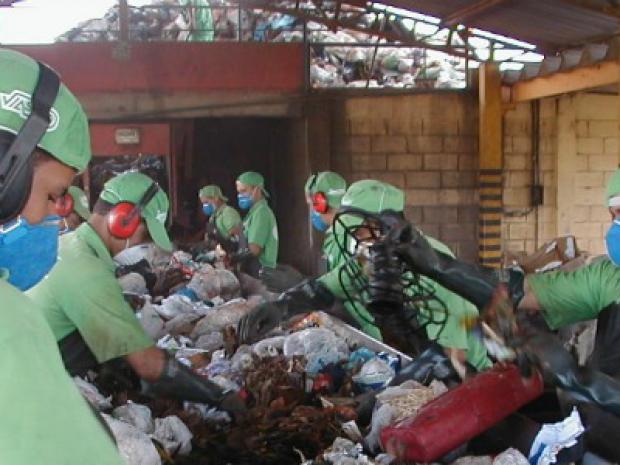Sharing the Waste, Sharing the Wealth
Discussion details

For the first time, waste recyclers in Uruguay are recognized by national law - giving them the right to decent working conditions, stable salaries and social protection. Prompted by a new understanding of the linkages between poverty and environment at the national policy level, the government of Uruguay is committing more funds and resources to apply the same lessons to other major issues confronting the country.
The waste industry is a big business in Uruguay, where 92 per cent of the population lives in urban areas and 40 per cent in the capital. In Montevideo alone up to 800 tonnes of household waste is processed daily. In the push for a greener economy the plan is for that figure to increase substantially in the coming years.
In the past, waste management has been seen as an environmental issue in Uruguay and one that primarily concerns municipalities. Working in partnership with the Poverty-Environment Initiative (PEI), a joint programme between UNDP and UNEP, the government is now approaching the issue from a very different angle, one that considers the human, as well as the ecological, dimensions of the waste cycle.
To understand the different stages of the waste cycle, and the scope to improve its environmental and social performance, PEI brought together the Planning and Budget Office, the Ministry of Social Development and the Ministry of Housing, Land Planning and Environment.
Together, the ministries turned their attention to the current institutional arrangements for the waste cycle, particularly the Packaging Law created in 2004 to promote the reduction, reuse, recycling and recovery of disposable packaging, which was already under review. Supported by the PEI, the government revised the Packaging Law to support new management systems that focus explicitly on the role that informal workers play in the waste cycle. A centralized plan was launched under the aegis of the Uruguayan Chamber of Industries to build "clean recycling circuits" that prioritize the recruitment of informal workers.
Today, an estimated 270 waste workers are involved in cooperatives focused on waste recycling in Canelones. Local governments provide sanitary recycling depots and sorting equipment. Waste recyclers receive basic social protection measures as well as twice the minimum wage. Above all, workers describe how the employment is giving them back their sense of dignity and self-esteem. The cooperatives are already performing well, achieving a recovery rate of 17 per cent of solid waste.
Around the world, governments are gearing up to make the shift to greener economies. It is their labour forces who make that transition possible, but all too often those workforces are invisible or under-represented. By exposing the essential role that waste collectors play in the recycling cycle and using existing legal frameworks to protect those workers, the government of Uruguay has helped to model what a fair and positive transition looks like in practice. Let the approach be an example to the rest of the world.
Read the full story on waste recycling in Uruguay here.
Log in with your EU Login account to post or comment on the platform.